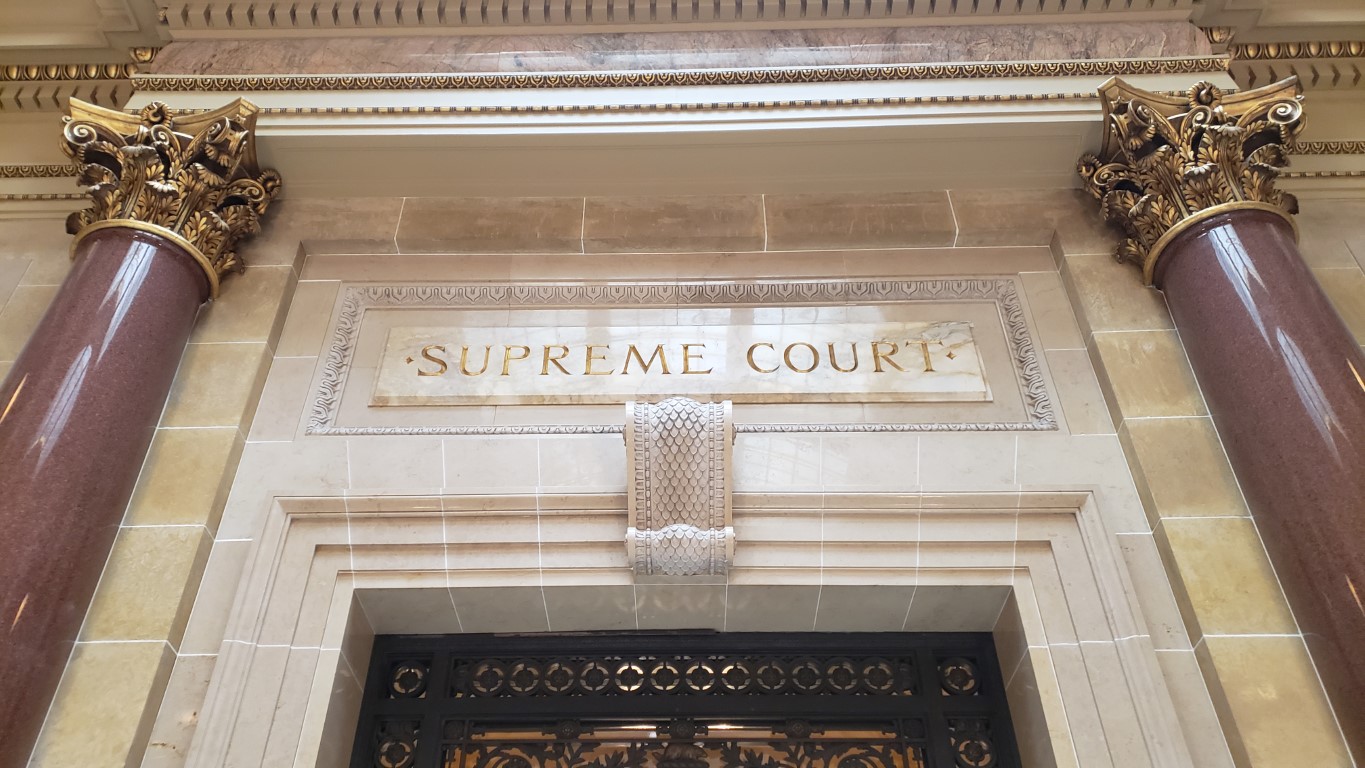In her dissenting opinion on yesterday’s order, conservative Justice Rebecca Bradley accused the majority of “going out of their way to expedite the lawsuit filed by a Democratic National Committee employee.”
The short deadline comes as the Elections Commission is scheduled to meet Tuesday to review applications from third-party presidential candidates seeking to qualify for the Wisconsin ballot, beginning a tight schedule for county clerks to take the list of certified candidates and print ballots before mailing them out next month to those who want to vote by mail.
The court issued two orders in the lawsuit it received Monday asking the justices to find that the Green Party does not meet the requirements under Wisconsin state law to place a presidential candidate on Wisconsin’s ballot.
Yesterday, the Wisconsin Green Party and the state election commission were given a deadline of 5 p.m. to respond to the lawsuit as named defendants. The court also gave other parties until 5 p.m. to file proposed briefs if they want the justices to consider their arguments in the case.
Bradley, who joined her conservative colleague Annette Ziegler in her dissent, criticized the “ridiculous deadlines” set in the case. She wrote in her dissent that it was the first time the court had issued such an order before the parties had informed the justices of the lawyers they had hired.
The order setting yesterday’s deadline came shortly after the majority ordered DNC staffer David Strange, named as plaintiff in the case, to provide contact information for the Green Party and the Election Commission.
This order gave Strange only two hours to respond.
In her dissenting opinion on the order, which Ziegler again joined, Bradley called the move unprecedented and accused her colleagues of “going beyond their neutral role of arguing the case on behalf of the DNC and appearing to facilitate an expedited review of that original action.”
Typically, the parties named as defendants in a lawsuit tell the court who will appear on their behalf.
The lawsuit was filed just over a week before the Election Commission’s meeting on Tuesday to consider ballot certification for presidential and vice-presidential candidates, after which there will be several deadlines for local authorities to have the ballots printed.
County clerks are expected to begin preparing ballots on Wednesday. They must be delivered to local clerks by September 18. City clerks must then send absentee ballots to voters who have submitted a request by September 19.
Strange’s motion for a preliminary hearing — asking the justices to take the case directly without letting it go through the lower courts first — argues that the Green Party has no members eligible to nominate for the presidential election. Without electors, the suit says, the party is not entitled to put anyone on the presidential ballot.
Michael White, co-chair of the Wisconsin Green Party, told WisPolitics this afternoon that he is still reviewing the lawsuit and criticized Democrats for filing it. He sent an email to the court earlier in the afternoon saying the party had not yet hired legal counsel.
The Green Party officially named Jill Stein as the party’s presidential candidate for the fall over the weekend. When she ran in Wisconsin in 2016, she received 31,072 votes, more than Donald Trump, who beat Hillary Clinton by 22,748 votes.
“I would call this a Trump-like attempt to eliminate the competition,” White said. “I think this is beneath the standards of the Democratic Party and the principles of Kamala Harris.”
The Green Party qualified for the presidential election after having a statewide candidate who exceeded 1% of the vote in 2022. As part of the process, party officials must meet on the first Tuesday in October to nominate a slate of 10 presidential electors.
To nominate an elector, party members must be Assembly and Senate candidates who were nominated in the primaries, state incumbents and senators who have remained in office. The Wisconsin Greens have no one who could qualify after failing to field a House candidate this fall.
In response, the party announced plans to recruit candidates for the 2026 elections and vowed that the Greens would run for the offices of governor, state assemblyman, secretary of state, 1st and 3rd congressional districts, and state assembly in two years.




